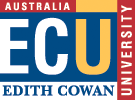COURSE INFORMATION
Disclaimer
This course information may be updated and amended immediately prior to semester. To ensure you have the correct outline, please check it again at the beginning of semester.
| Y71 Bachelor of Communications | |||||||||||||||||||||||||||||||||||||||||||||||||||||||||||||||||||||||||||||||||||||||||||||||||||||
This course focuses on developing a wide range of professional and communication skills through a hands on approach to traditional and new media. It will provide you with skills in research and writing and critical and creative thinking. Practice and theory go hand in hand within this course, and inform each other across all of the available specialisations. As well as giving you the knowledge you will need to succeed in a dynamic communication and cultural environment, the course gives you the skills to adapt and thrive in facing and responding to challenges in a range of communication and cultural fields. Graduates from this course gain exciting employment opportunities within corporate and government sectors and our global media industries. |
|||||||||||||||||||||||||||||||||||||||||||||||||||||||||||||||||||||||||||||||||||||||||||||||||||||
| ACCREDITATION One or more of these majors/Unit sets is externally recognised. Refer to the Major/Unit set description for details |
|||||||||||||||||||||||||||||||||||||||||||||||||||||||||||||||||||||||||||||||||||||||||||||||||||||
| ADMISSION REQUIREMENTS Standard University Admission requirements apply. |
|||||||||||||||||||||||||||||||||||||||||||||||||||||||||||||||||||||||||||||||||||||||||||||||||||||
| COURSE LOCATION This course is available on Mt Lawley, and Joondalup Campuses. |
|||||||||||||||||||||||||||||||||||||||||||||||||||||||||||||||||||||||||||||||||||||||||||||||||||||
| MODE OF STUDY This course is available by Full-time, or Part-time mode. |
|||||||||||||||||||||||||||||||||||||||||||||||||||||||||||||||||||||||||||||||||||||||||||||||||||||
| MODE OF DELIVERY This course is available in the following mode of delivery - On-campus. |
|||||||||||||||||||||||||||||||||||||||||||||||||||||||||||||||||||||||||||||||||||||||||||||||||||||
| COURSE STRUCTURE The Bachelor of Communications aims to provide graduates with a range of Communications skills, and to prepare them for work in Communications professions. Students specialise by taking either one or two Majors from a choice of:
The Bachelor of Communications degree is a 24 unit, 360 credit point, three year full-time award which may be studied in part-time mode.
The degree has three main components:
Whatever pattern students choose:
|
|||||||||||||||||||||||||||||||||||||||||||||||||||||||||||||||||||||||||||||||||||||||||||||||||||||
| |||||||||||||||||||||||||||||||||||||||||||||||||||||||||||||||||||||||||||||||||||||||||||||||||||||
Last Updated - Higher Education: 3/15/2013 VET: 5/20/2013
